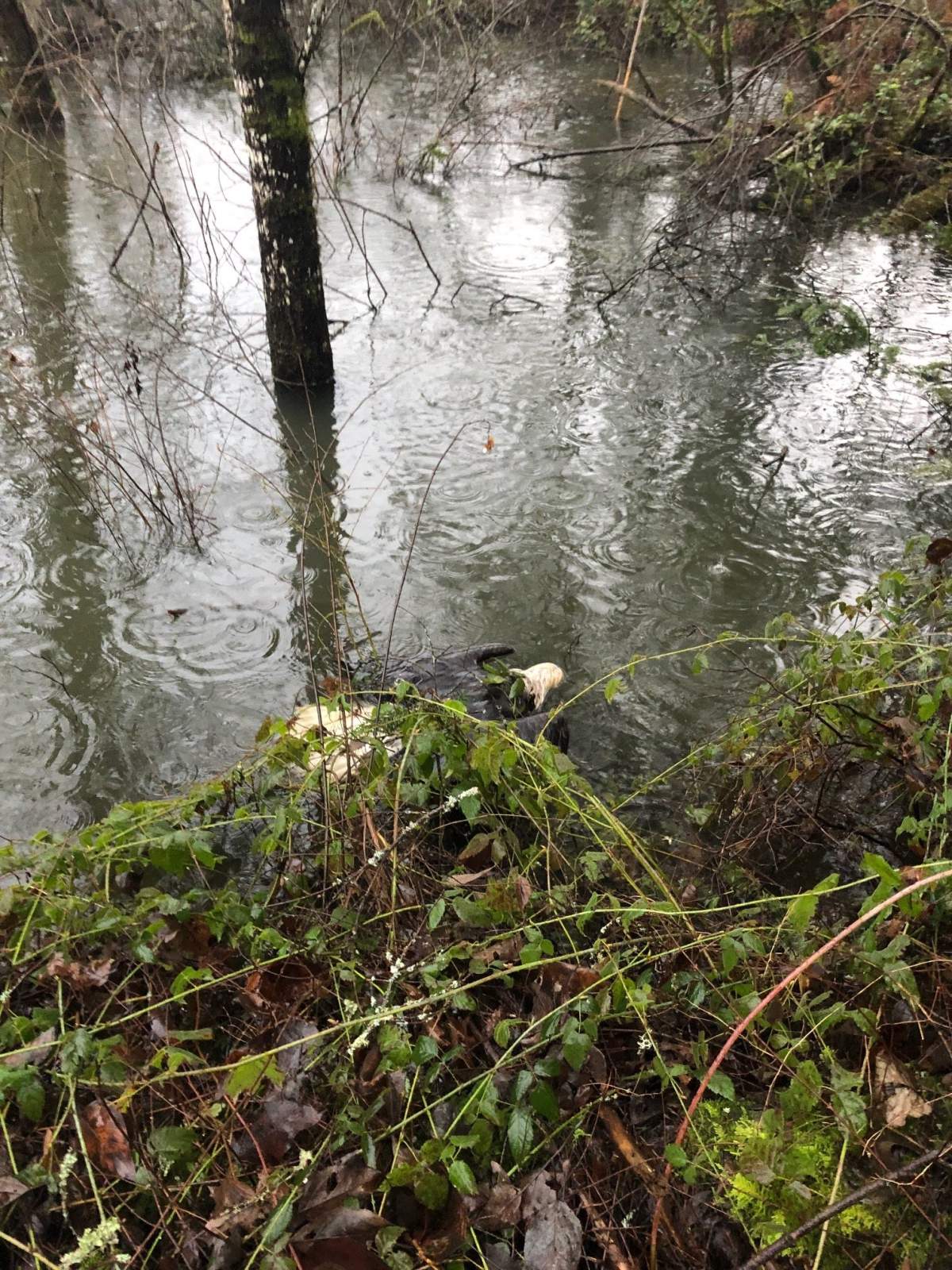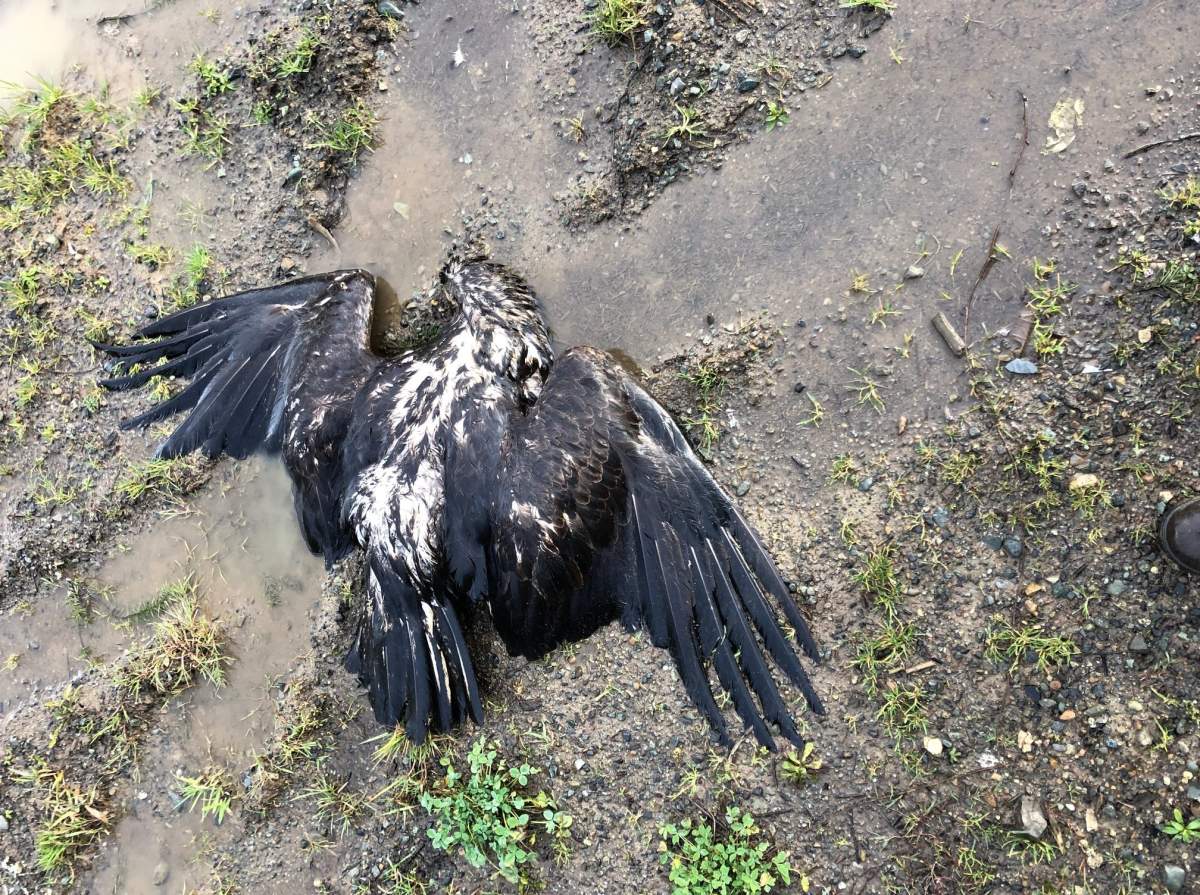

A wildlife rescue group is scouring an area of Vancouver Island after a dozen bald eagles turned up poisoned this week.
The birds were found in the North Cowichan area north of Duncan, starting on Wednesday. Six of them died, and the Raptor Rescue Society says another six appear likely to recover, after medical treatment.
“The prognosis on them is good,” said society executive director Robyn Radcliffe. “One is not doing as well today, but our fingers are crossed for him.”
Radcliffe was out in a canoe on Sunday searching for more of the birds.
“We suspect that a farm animal was euthanized and then not disposed of correctly,” Radcliffe said.
“So, if an animal is euthanized using any euthanizing drug, it’s super potent to animals feeding on a carcass. So it’s likely that it wasn’t buried, which is what is supposed to happen.”

Get daily National news
Ken Langelier, medical director at VCA Island Animal Hospital where the birds were being treated, agreed with the likely diagnosis.
“We don’t know for sure,” he said.
But he said clues — such as the fact that the birds all had crops full of decomposing meat, and the animals’ response, indicate accidental poisoning is the likely cause.
WATCH: Food at Okanagan bird rescue centre poisoned
“There’s not a lot of other toxins out there that can cause this same kind of condition where the birds actually look like they’re under a deep anesthetic,” he said.
“Of the birds that were found, they were all low body temperature, people thought they were actually dying on the spot, that’s how sedate they were. They weren’t responsive, if you touched their eye their third eyelid would slowly come across, but they were thinking of dying.”
The society reported the poisoning to the Conservation Officer Service (COS), which Radcliffe said is now investigating.
The Ministry of Environment confirmed the COS was investigating, but said there would be no further comment until Monday.
Anyone in the area who spots an eagle that appears to be in distress, or “drunken,” is asked to contact the Raptor Rescue Society at 778-936-0732.
The group says the birds need to have their stomachs emptied of crop contents, given warmth, and be given activated charcoal and intravenous fluids, but they can be saved.
Radcliffe said she doesn’t believe anyone meant to hurt the birds, but said the affected area of Vancouver Island has a high eagle density, and that eagles — and any other scavengers in the area — are at high risk from poison in situations like this.
“Some people were quick to be upset, but I’m sure it’s not intentional,” she said.
“We do need to hopefully use this as an opportunity to remind people that we’re being really careful about what we’re putting out in the environment.”














Comments
Comments closed.
Due to the sensitive and/or legal subject matter of some of the content on globalnews.ca, we reserve the ability to disable comments from time to time.
Please see our Commenting Policy for more.